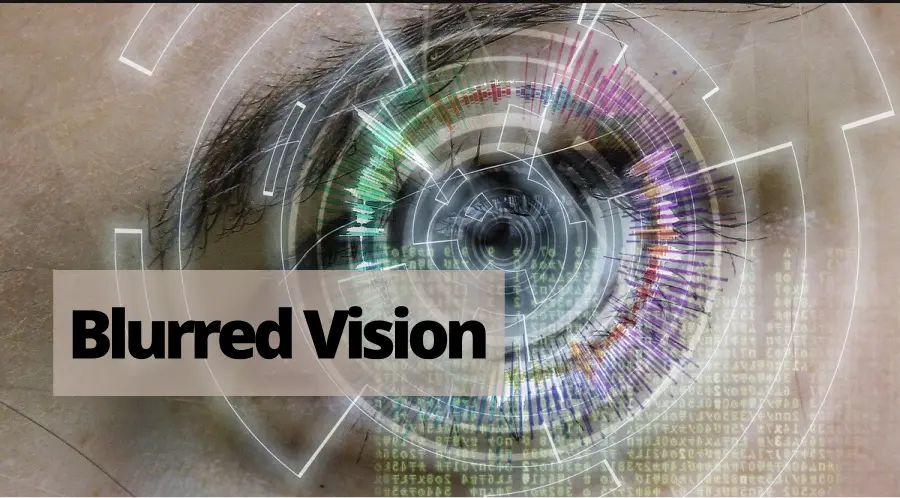Becoming conscious of blurred vision after LASIK surgery and other after-effect conditions is expected, as the eyes are the most critical organ in our body. In the modern world, researchers have developed advanced technologies to minimize the discomfort and complications during LASIK vision correction surgery.
The surgery involves using a versatile laser to make a corneal flap and removing corneal tissues to fix the refractive error. A common condition a patient observes is blurred vision just after the surgery or at night. Advanced LASIK procedure has a higher success rate (90.2%) in treating nearsightedness, farsightedness, and astigmatism.
How long will I have blurred vision after LASIK surgery?
Once your surgery is completed, your vision will be blurry, and you will feel cloudy weather around you. LASIK can take 24-48 hours (about two days) to give you 20/20 or better vision. The blurry vision is caused by the corneal flap unfolding back to its original position.
If you have a healthy, thick cornea and get LASIK surgery from a reputable, certified eye surgeon, your vision will be beyond compare. But still, you can get blurry vision during the first 3 months of the LASIK procedure. The blurred vision symptoms will stay longer or shorter than the individual symptoms.
Reasons why I have a blurry vision:

Don’t panic about the blurred vision after your surgery. It’s common in patients, but later, as the cornea heals, you will get sharp vision and see things more clearly than ever before. Some common factors or reasons might cause the blurred vision you have. Let’s discuss a few here;
Caused by cataract:
As we grow, the optical and ciliary tissue gets weaker, and there are possible threats to getting cataract conditions. Suppose you are suffering from this cataract condition. In that case, there is a higher chance you will get blurred vision after proceeding from the LASIK surgery. A patient will see a cloudy environment during the night and in lightening areas. The LASIK will improve the vision but only partially if you already have a cataract condition.
Corneal aging:
One can’t stop corneal and other organ (eye) tissues from aging. The blurred vision can be caused if you have previously gotten LASIK for myopia and hyperopia and vice versa. You can get blurry near or far vision, respectively. The eye condition can be overtreated in the proceeding surgery, impacting corneal health.
Presbyopia:
You can have blurred vision due to the inability of ciliary muscles to help you focus on specific things. The typical failure to focus on particular near objects results from Presbyopia. This comes with age, and in the forties, it becomes dominant more than in the younger ages.
Whether you have LASIK or not, you must focus more on nearby objects and see them. If you have farsightedness and you have gotten LASIK for its treatment, then at a later age, you will get sharp vision via glasses and contacts in some cases.
Autoimmune disease:
If you have an autoimmune disease and have gone for LASIK, in that case, there are higher chances that you would get fluctuations in your LASIK outcomes oddly. Primarily, diabetes affects your focusing ability. You would have blurred vision because of your blood sugar level, not the LASIK aftereffects.
Overrated or Incomplete surgery:
You may have blurred vision because of getting LASIK surgery from an inexperienced eye surgeon. He may be unable to perform the surgery using the laser device to obliterate the corneal tissues and fix the refractive error. In that case, you would have to improve your vision via another surgery.
What to and not to do after LASIK surgery?
Be calm; it’s. It’s normal to have blurred vision just after the LASIK procedure. Let’s go over the to-do list to prevent or minimize the chances of getting blurred vision just after your LASIK surgery.
Do:
1. Make sure your eye surgeon or ophthalmologist recommends using eyewear. It is prescribed to prevent any outside element from entering the newly operated eyes. The eyewear can goggles, glasses, eye patches, and a safety mask.
2. Rest as much as needed to heal your cornea faster. The cornea has the superpower to heal faster than any other organ in the human body.
3. Take the prescribed medicines on time and put ophthalmological drops in your eyes to avoid the cause of blurriness.
Don’t:
1. Do not rub your eyes when you feel itchiness or discomfort. This can cause blurred vision because your cornea is not completely healed and can become dislodged from its original position.
2. Exposure to a dusty environment after LASIK surgery can allow dust particles to enter the eye, causing infections or inflammation. This can ultimately lead to blurred or hazy vision.
3. For females, use beauty care products on the face and eyelashes. The cosmetic can adversely affect your operated eyes to get improved vision.
A severe case of blurriness:
If you have severe complications with blurred vision, consult your eye surgeon for immediate treatment. If you have dry eyes and other eye conditions, consult the doctor and explain your condition. Then, he can examine you and prescribe the best medicines to eliminate the symptoms. Note: Not only tASIK can cause blurred vision.
Conclusion
After extensive research on the aftereffects of LASIK, it is concluded that blurred vision is normal. It can last 3-7 days, but the vision gets clear as the cornea heals. Eye surgeons suggest not having LASIK if you have a thin cornea. Following the doctor’s prescription can avoid serious complications such as infections, inflammation, and cloudy vision. Take rest and avoid the toxins of a polluted environment.
References:
Sasse, A. C., Shajari, M., & Kohnen, T. (2016). Influence of blurred vision, accommodation, and target laser settings on eye movements during LASIK.
Melki, S., & Azar, D. T. (2001). LASIK complications. Survey of Ophthalmology, 46(2), 95–116.
Maloney, R. K., Luchs, J. O. D. I., Moshirfar, M. A. J. I. D., CHU, Y. R., & STAHL, J. E. (2007). Blurry vision after LASIK. Cataract Refract Surg Today, 7, 5763.




